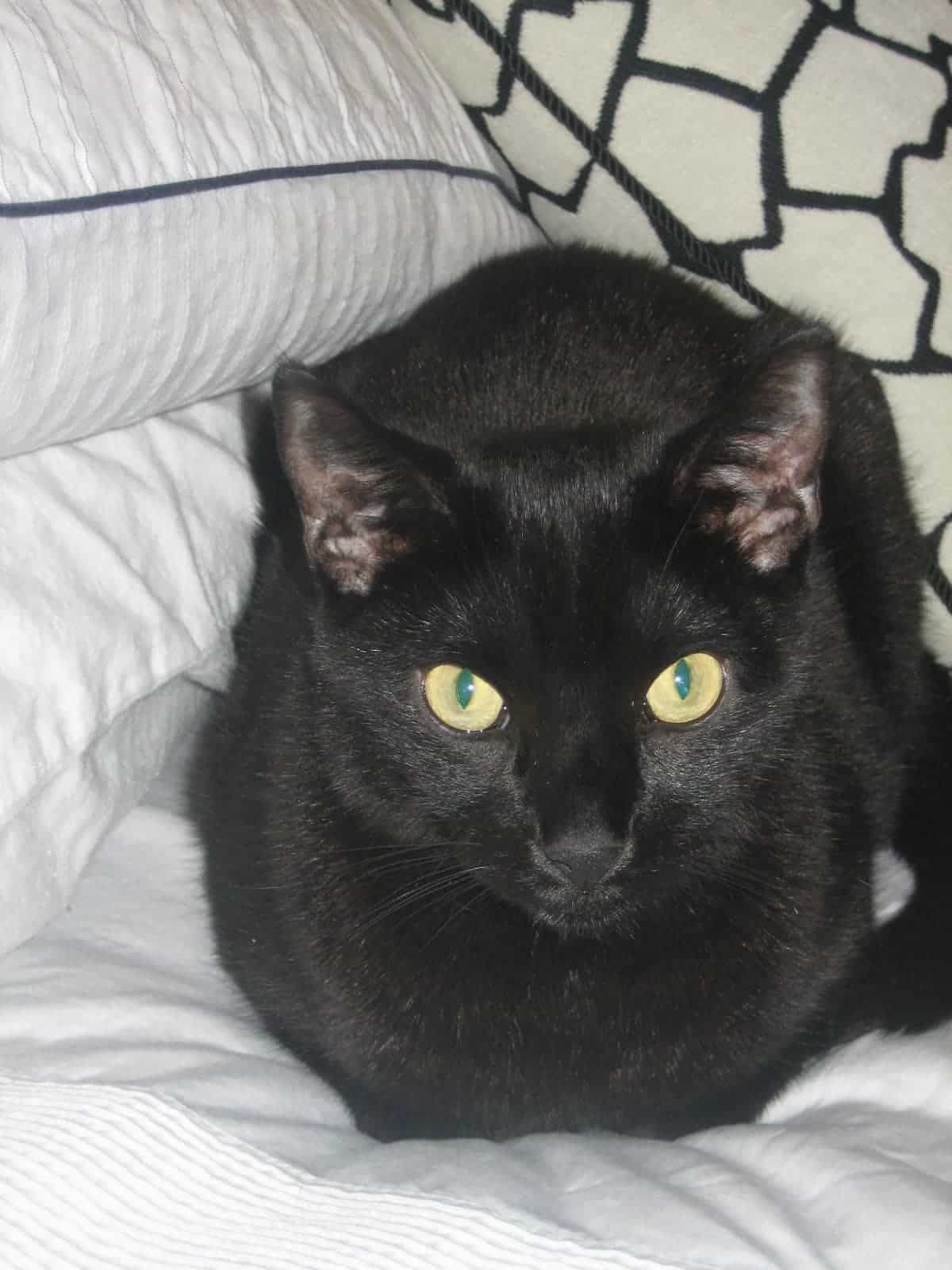Vaccines help protect your cat against many of the most serious potentially fatal diseases. Newborn kittens receive natural protection from antibodies in their mother’s first milk (called colostrum) while nursing. This protection lasts for the first few months of life then your kitten has to fend for himself. Most kittens need a series of shots at 8, 12, and 16 weeks of age. After that a booster shot every one to three years is required for protection. Vaccines are routinely recommended for Upper Respiratory Disease (Cat Flu) caused by Feline Herpes Virus Type-1and Feline Calici Virus as well as Feline Distemper. These vaccines are 80 percent effective. Nasal vaccines have recently become available for Herpes and Calici Virus. Some feel these may provide better protection than the standard injectable vaccines. They are squirted up the nose. Side effects are mild and may include sneezing for a few days.
FELINE DISTEMPER
Feline Distemper, also called Feline Panleukopenia, is a highly contagious fatal viral disease of cats. Until recently, this Virus was considered to be the most serious infectious disease of cats and thousands of unvaccinated cats died each year. This virus attacks the digestive system and signs include a sudden onset of depression, vomiting, diarrhea, dehydration, and in most cases, death. Distemper vaccination is recommended for all cats because of the severity of the disease and its persistence in the environment.
RABIES VACCINE
Cat Rabies is on the increase. Presently the number of documented cases of Feline Rabies exceeds that of all other domestic animals. Cat Rabies is a major public health concern. Because of the fatal outcome and potential for human exposure, Rabies vaccination is recommended, it’s also a law in many states. All cats 12 weeks of age and older can receive an initial shot which is repeated at 1 or 3 year intervals, depending on the vaccine manufacturer and the state laws. Having your cat vaccinated for Rabies can also protect you legally. If an unvaccinated pet is bitten by another unvaccinated animal, the pet must be quarantined for 6 months or euthanized. Putting a healthy pet to sleep just because he was not vaccinated is a tragedy for all involved.
FELINE LEUKEMIA VIRUS VACCINE (FELV VACCINE)
Feline Leukemia Virus (FELV) is the leading killer of cats today. A vaccine is available but cats should be blood tested negative first, because the vaccine is ineffective in cats already infected. The vaccine requires 2 initial doses 3 to 4 weeks apart with annual boosters and can be given to kittens at 8-12 weeks of age. Prolonged cat-to-cat contact is usually necessary for disease transmission. Owners with cats at high risk of exposure, such as outdoor cats and show cats, should consider vaccination.
FELINE BORDETELLA
Feline Bordetella Bronchiseptica is a contagious bacterium that occasionally is involved in causing or complicating upper respiratory infections in cats. Signs usually include sneezing, runny eyes and a nasal discharge. A fever and pneumonia may develop. A nasal vaccine is available for cats over four weeks old.
WARNING
CANCER RISK IN CAT VACCINES/VACCINE SITE SARCOMA
After your cat is vaccinated have your vet show you where the shot was given. A lot of cats get small lumps at injection sites but most go away on their own. A very small number of cats (20 out of every 10,000) can develop a form of cancer called a Vaccine Site Sarcoma within a time span of 3 months to 3 ½ years after a vaccine. If you see a lump in your cat that lasts for 6 weeks, have it checked by a specialist at once. Surgical removal of these lumps at 6 weeks is considered to be a minor surgical procedure but by 12 weeks, it becomes major.
NOSODES (Homeopathic vaccines)
Homeopathic vaccines are called Nosodes. Nosodes are made from natural disease products. They are sterilized, diluted, and prepared so that they are safe and effective. Nosodes are given by mouth over a period of time that may extend from weeks to months. Like vaccines, they stimulate the cat’s immune system to protect against infection. Nosodes are available for Feline Distemper, Feline Leukemia and Feline Infectious Peritonitis. There is no nosode for Rabies.









